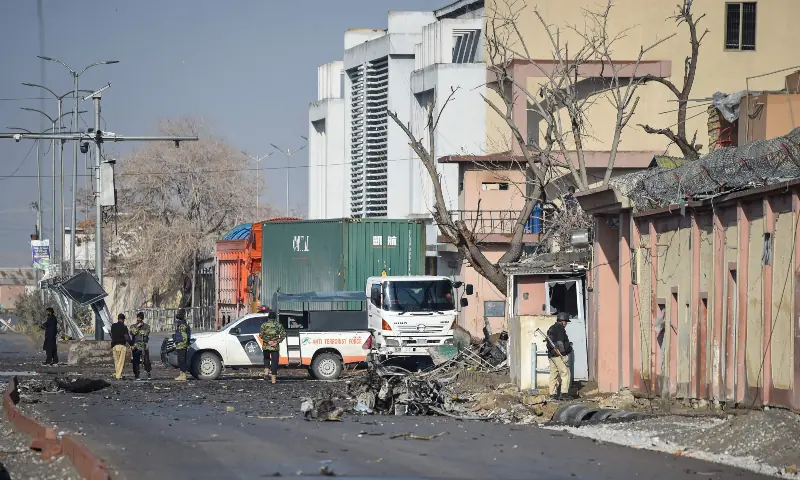The economics of climate change presents a growing challenge as the costs of severe weather events, droughts, and environmental degradation disproportionately burden developing nations that contribute the least to global emissions.
As the effects of climate change are gradually increasing and so does the cost it bears. The most severe storms from tornadoes to hurricanes and continuing drought affecting agricultural productivity, are becoming a menace to economies of countries across the globe. However, these costs are not shared across the board. Unfortunately the fact is that those who contribute least to the international greenhouse emissions continue to suffer the most. This unfairness is the essence of the economic challenge presented by climate change and requires prompt action by leaders, organizations, and individuals.
Inequality in the Economics of Climate Change
On its part, the World Bank has estimated that global warming will lead to another 130 million people being classified as living in extreme poverty by 2030, contributing to the widening of income disparities.
The expenditure incurred in the immedate response to climate change affected disasters including damage to infrastructures, homes and productivity costs, is unbearable. It was estimated that climate disasters amounted to $313 billion loss in the last few years. But these figures just provide part of the details. The opportunity costs are equally burdensome in terms of long-term health effects, lowered species and crop diversity on people’s pockets, among others.
These expenses are easier to handle for developed nations that already have facilities and infrastructure in place. We can however note that developing nations do not possess sufficient financial and institutional means to adequately respond. In Bangladesh or Pakistan for instance, a single catastrophe will lead to the loss of lives, destruction of property, homes and means of livelihood and will put the affected families into cycles of poverty that may take generations to correct.
In particular, the industrialized countries including the United States of America, United Kingdom and other European states have been emitting Greenhouse gases starting from the Industrial Revolution age, enriching themselves in wealth and technology in the process. At the same time, the countries of the Global South, exposed to the consequences of climate change today, account for a small percentage of emissions over the past centuries. However, they are being pressured to bear a disproportionately higher cost of it all.
Also See: COP29 and G20: Defining Global Cooperation Crisis
Climate Finance and the Economics of Climate Change
As a way of trying to redress this imbalance, the idea of climate finance has emerged as the new buzzword in climate change talks. Even under the Paris Agreement, the developed countries are compelled to support developing nations financially to overcome the effects of climate change. But that is where the reality doesn’t meet the expectations.
Although major emission sources are nations of the Global North, total finance mobilisation in 2020 to the worth of $100 billion annual target promised by developed nations was never met, paralleling the loss of already diminishing trust between the North and the South.
Furthermore, most of the climate finance is given out as loans thus perpetuating new debts for the benefited nations. This approach goes against productivity as well as is unsustainable in the long run. When nations are already stressed by climate change impacts that slash their economic revenues, they incur more debt to pay for rebuilding that is not sustainable. Who Should Pay? Who should pay for climate change is one of the most heated topics of climate change impacts in the recent past? On one hand, there is a profound argument for the so-called ‘polluter pays’ principle, whereby countries emitting the most greenhouse gases should be financially responsible for mitigation and adaptation.
Some scholars, however, have noted that attempts to achieve a fair sharing of emission cuts across current generations are unrealistic and tend to provoke political controversy. That is where the possibility of implementing one solution, namely, the taxation of fossil fuel companies, which still earn billions of dollars, polluting the planet, lies. Allocating a percentage of these profits to an international climate wallet could offer needed money to struggling developing countries while imposing responsibility for the catastrophe on business.
A Path Toward Equitable Climate Action
To mitigate or even eliminate the possibility of climate change’s negative effects on the economy, more radical systematic approaches have to be taken both at the global and country level. Developed and emerging economies must guarantee that committed climate finance is provided and appropriately disbursed to vulnerable populations. Also, universally effective carbon pricing and taxes on fossil fuels should also be provided as following revenues to be used to finance adaptation and for disaster assistance in the developing nations. Debt swaps, for example, whereby a country cancels all or part of the amount it is owed in exchange for climate assets, may help to ease pressure on Developing Countries in return for investments in Climate Change Mitigation technologies. On the same note, promoting investment in renewable energy, affordable agricultural production and climate-robust infrastructure helps create employment opportunities, economic development, and lowers climate vulnerability. In combination, all these measures tackle the present climate concerns and thus form the basis for better environmental climate in realization of an equitable global economy.
The views expressed in this article are the author’s own. They do not necessarily reflect the editorial policy of the South Asia Times.

![The economics of climate change exposes rising costs and unfair impacts, with vulnerable nations hit hardest, demanding urgent global action [Image adapted from United Nations]](https://southasiatimes.org/wp-content/uploads/2024/12/SAT-Web-Banners-23.webp)





